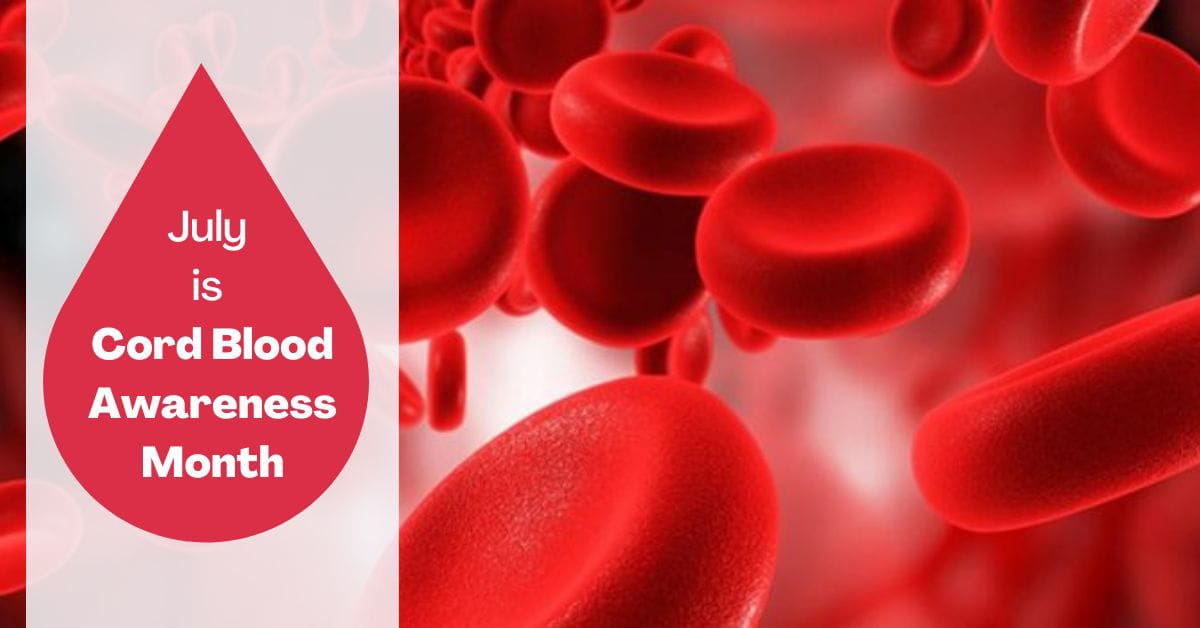
Cord Blood Awareness Month
July is dedicated to raising awareness of cord blood banking and the benefits of donating or storing for future use and medical research. Cord blood is the blood that is leftover in the umbilical cord and placenta after birth, which contains life-saving stem cells with the potential to treat blood disorders such as leukemia and lymphoma. There is also ongoing research and clinical trials to determine if cord blood transplants can treat other medical diseases such as diabetes and autism. As a general practice, the umbilical cord is discarded as medical waste, but there are options to donate or save your baby’s cord blood through public or private cord banking.
Donating your baby’s cord blood to a public cord bank is free and can be beneficial to patients in need of a transplant. Cord blood is one of the three sources of blood-forming cells used in transplants; the other two being bone marrow and peripheral blood. Since the first transplant in 1988, over 60,000 patients have benefited from cord blood transplants, according to the Cord Blood Association. Cord blood is now responsible for 12% of stem cell transplant matches made possible by global registries. It can be used to treat over 80 blood and immune system diseases and disorders. There is also the option of storing cord blood at a private bank for a fee. The blood cells will be readily available only to your family for future use. Storing cord blood in a private bank guarantees a perfect match should your child ever need its own stem cell transplantation. This is also a viable option if a family member has a disease that can be treated with cord blood cells.
There are different regulations on proceeding with cord blood banking depending on your country. Deciding to donate or store your baby’s cord blood is a personal and informed decision that needs to be decided in advance, usually during your third trimester of pregnancy. If you are an expecting parent, speak to your health care provider about the options available to you.